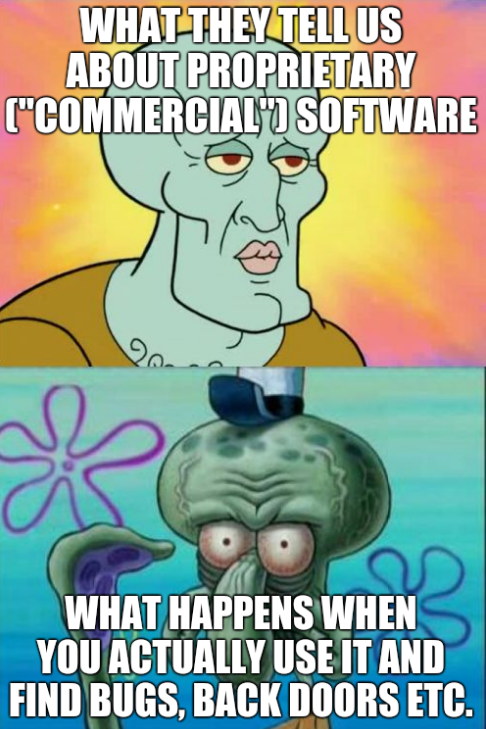

WE don't generally believe in omission or censorship (we abhor gagging), even if that's part of quality control or fact-checking. Sometimes we add editorial remarks ("Ed") to our daily news picks, but sometimes the number of false reports is just too large to exhaustively rebut with just a hasty comment. Recently, for instance, a Microsoft employee spread FUD about Linux. That FUD was then carried on by the publisher where Microsoft Peter had worked (up until his arrest for pedophilia) and we then saw 10 more similar articles (at least 10). What all these articles bar one neglected to say is that the bug was incredibly hard to exploit and almost nobody enabled the mode which rendered it practical (peer to peer). Never mind what vendor-specific nature it had as well...
"Search the news for "open source" and sometimes you may find that as much as 80% of the results are just openwashing dross if not promotion of proprietary software vendors."Let's face it; some media is almost literally in the business of attacking Linux and creating a stigma about FOSS in general. Obviously it never even mentions "GNU".
So how to best tackle such FUD? Writing a detailed rebuttal sometimes results in more traffic for the FUD peddlers, hence we've included no links here (readers can search "linux wifi" news if they're very curious). Perhaps the key lesson here is that scepticism of the media and its motives is much needed and it's no secret that some publishers want us to constantly worry about FOSS security bugs (if not licensing) because that helps distract from deliberate back doors (and draconian EULAs). Techrights has fought FUD and misinformation for many years, but at the same time it's important to be selective because rebuttals can give visibility to lies that would otherwise go 'under the radar', so to speak... and that's one of the downsides of our "Openwashing Reports" (they cite lots of openwashing propaganda pieces to highlight what's wrong with these).
Nowadays when one searches for "Linux" news one receives more negative reports than positive ones and Microsoft often turns up among the results (painting Windows as "Linux" or promoting some Microsoft stuff by piggybacking the "Linux" brand). Search the news for "open source" and sometimes you may find that as much as 80% of the results are just openwashing dross if not promotion of proprietary software vendors. Those who have tried this over the past year will know what we mean (no need to reproduce). ⬆